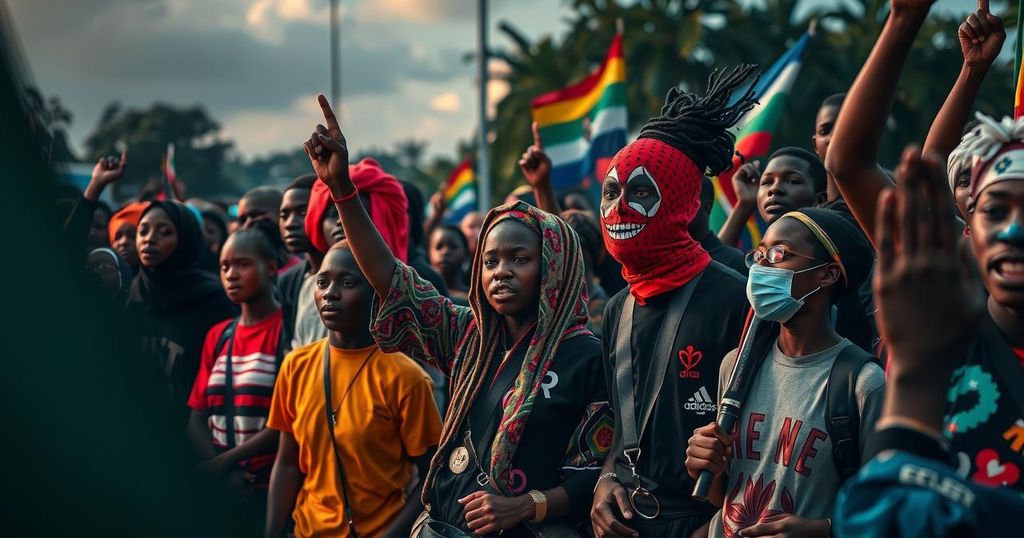Youth Protests in Africa: A Call for Change Against Corruption and Oppression

Africa has seen a rise in youth-led protests, notably against corruption and high living costs, as young people demand change from aging leaders. The recent protests in Kenya over a controversial finance bill led to fatalities, highlighting police brutality. Similar movements have emerged in Nigeria, Uganda, and Senegal, showcasing an increasingly organized youth demographic advocating for their rights across the continent.
In recent months, Africa has witnessed a surge of youth-led protests, reflecting a growing frustration with aging leadership and pressing social issues. The protests began in Kenya, where thousands of young demonstrators voiced their opposition to a controversial finance bill imposing higher taxes. The response from security forces was brutal, resulting in multiple fatalities and fierce calls for accountability. This current wave of activism resonates with similar movements across the continent, such as Senegal’s protests against postponed elections and Uganda’s climate activism, where young people have emerged as potent agents of change in their communities.
The phenomenon of youth-led protests is a significant trend in Africa, where approximately 70% of the population is below the age of 30. Young people are increasingly mobilizing against issues including corruption, exorbitant living costs, and environmental degradation, all while facing violent retaliation from authorities. The recent protests have highlighted the urgent need for political reform and greater representation of youth in governance. Historical grievances tied to ineffective leadership have exacerbated frustrations, prompting a reevaluation of power structures across various nations in Africa, including the responses of the governments to these movements.
The backdrop of this wave of protests stems from a youthful demographic explosion across Africa, where a large portion of the population consists of individuals under the age of 30. This demographic reality contrasts starkly with the older age of many leaders, averaging 62 years. As intensifying economic challenges and social inequalities persist, young Africans have increasingly taken to the streets to demand accountability from their governments. These movements are not isolated; they reflect a broader regional trend of youth advocating for change, as demonstrated by sustained movements in countries like Nigeria, Uganda, and Senegal.
In summary, the wave of youth-led protests throughout Africa underscores a collective demand for substantial change in governance and accountability from those in power. These movements, fueled by mounting frustration over systemic issues, reveal a generation unwilling to remain passive amid adversity. As protests strengthen across the continent, the enduring commitment of young activists to challenge oppressive leadership signals a pivotal moment in the quest for democratic reforms in Africa.
Original Source: www.context.news







